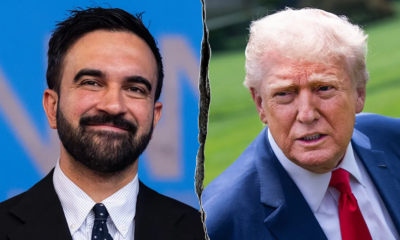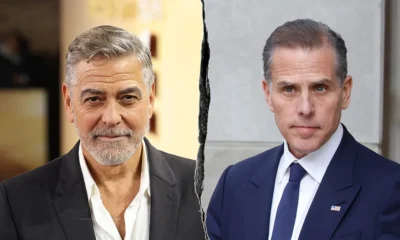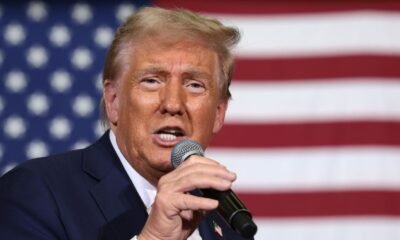Politics
Why South Korea Might Soon Have a New Capital City That’s Not Seoul
Presidential frontrunner Lee Jae-myung’s bold plan could shift the country’s political heart from Seoul to Sejong, rewriting history and transforming a sleepy city into the next global hub.
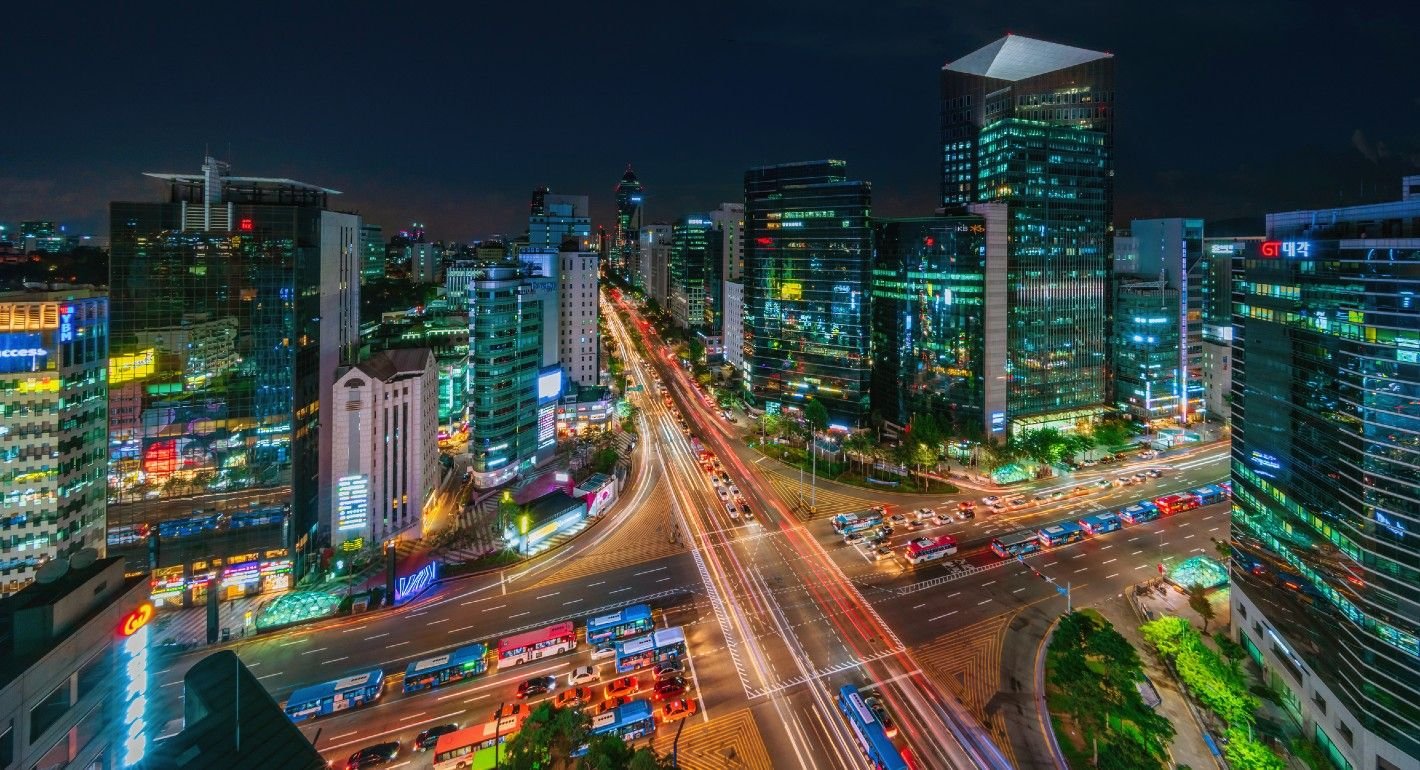
Seoul may soon lose its crown as South Korea’s nerve center if election frontrunner Lee Jae-myung delivers on his ambitious pledge. The presidential candidate, currently leading in the polls, has unveiled plans to move the presidential office and National Assembly to the lesser-known city of Sejong—a quiet, government-planned community located 100 kilometers south of the capital.
While many South Koreans have grown up believing that Seoul is synonymous with power, culture, and commerce, Lee’s proposal could shift that narrative entirely. His vision? Sejong as the “de facto” administrative capital, and neighboring Daejeon as a global science powerhouse.
This is not the first time the idea has been floated. The late President Roh Moo-hyun initially championed the plan in 2003 to ease Seoul’s overwhelming congestion and encourage balanced regional development. But after a constitutional ruling in 2004 upheld Seoul’s status as the capital, the concept was left in limbo—until now.
If Lee wins the presidency, Sejong may finally get its long-awaited transformation. “I will push for the complete relocation of the National Assembly and presidential office to Sejong through social consensus,” Lee stated ahead of the election. Already, ministries and government agencies have gradually migrated south over the past two decades, but Seoul has remained the center of gravity for political, economic, and social life.
Despite its clean layout and futuristic design, Sejong still feels more like an administrative complex than a vibrant city. Government workers often return to Seoul on weekends. “I go back twice a month just to see family and friends, and to visit big hospitals,” said 30-year-old civil servant Kevin Kim, who lives in Sejong but spends much of his personal time in the capital.
Even the city’s commercial offerings leave much to be desired. Real estate developments, like the M-Bridge mall designed by star architect Thom Mayne, remain largely empty. Sejong holds the highest vacancy rate in mid-to-large shopping centers in the country at 25 percent, and the youth population continues to dwindle.
However, Lee’s campaign has already stirred excitement. Property transactions in Sejong tripled this April compared to last year, echoing a similar boom back in 2020 when relocation talks last surfaced—though prices crashed again when momentum faded.
Experts believe Sejong’s success hinges not just on political will, but on holistic development. “The weekdays are busier than weekends,” noted Jace Kim, a local restaurant owner. “The city is great for families, but it lacks universities and major companies to attract the younger generation.”
Research voices are advocating for an American-style capital model. “Washington, DC, could be a template,” said Moon Yoon-sang of the Korea Development Institute. “We need to move more than buildings—we need to shift where influence and action happen.”
But fully relocating the capital would require constitutional amendments and a public referendum. Recent surveys show a divided opinion: while over 54 percent support moving the capital to Sejong, a similar percentage oppose relocating key institutions like the presidential office and parliament.
Urban policy experts like Professor Park Jin believe the vision should extend beyond Sejong. “We must empower our other major cities to compete with Seoul. For Sejong, combining with Daejeon could create a new administrative and research epicenter,” he suggested.
With internal migration heavily favoring Seoul, South Korea faces a mounting crisis of regional decline. Cities like Busan are already flagged as at risk of extinction due to falling birth rates and shrinking youth populations. Sejong aims to reach 800,000 residents by 2040—but without robust infrastructure and employment, that goal remains distant.
As South Korea stands at this crossroads, Lee Jae-myung’s proposal is more than an urban planning initiative—it’s a call to redefine the national identity. And if Sejong rises, it won’t just change maps; it could reshape the nation’s future.
Politics
The Untold Strain of Sundance Festival Insiders Describe the Emotional Highs and Breaking Points
A racially charged confrontation at a high-profile Sundance gathering turns violent, prompting an arrest and reigniting debate over hate speech and political rhetoric in public spaces.
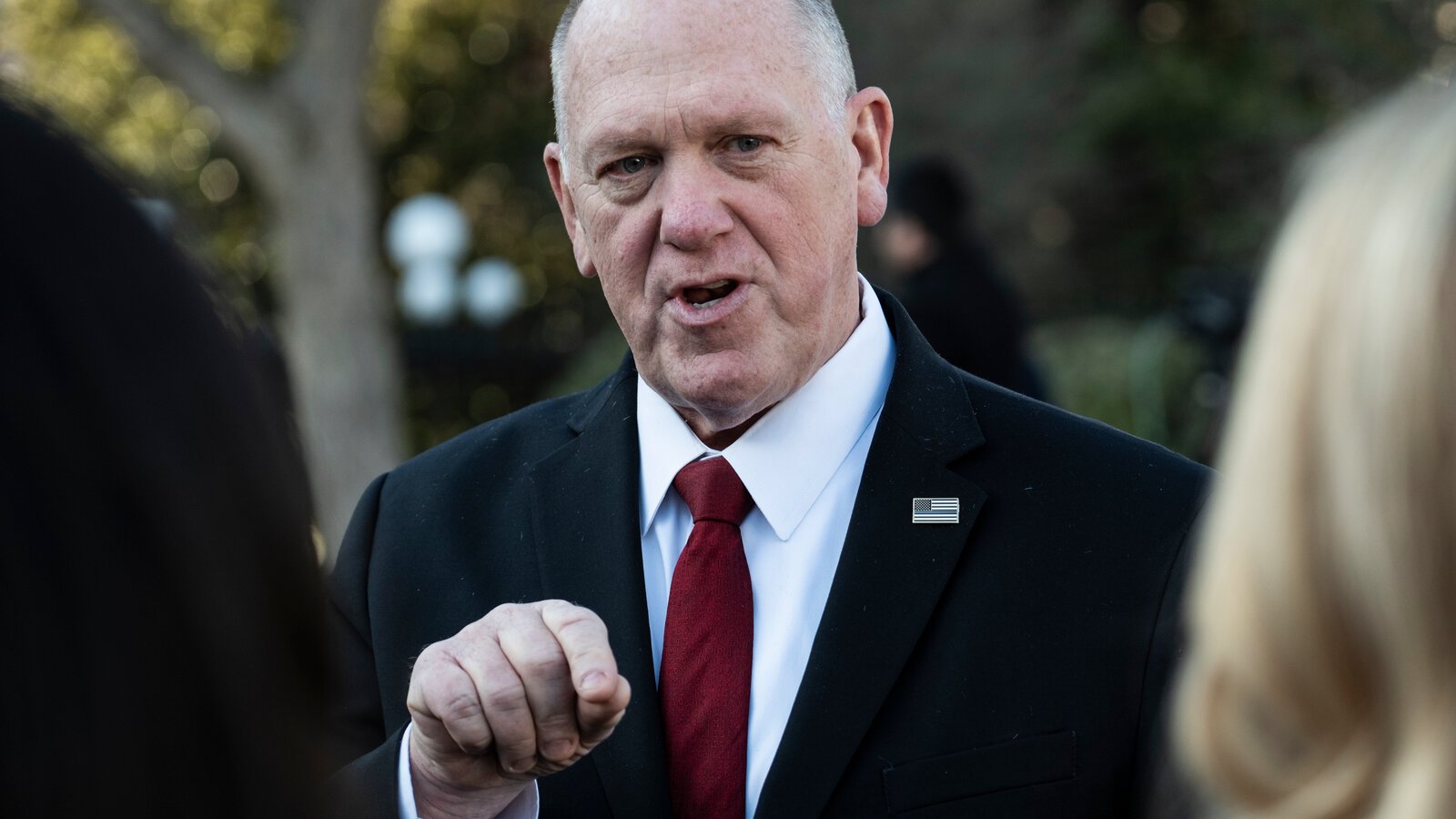
What was meant to be an exclusive celebration during the Sundance Film Festival ended in shock and outrage after a racially charged confrontation turned violent, leading to an arrest and widespread condemnation.
A man was taken into custody following an incident at a private party hosted by Creative Artists Agency (CAA) during Sundance, where he allegedly confronted U.S. Congressman Maxwell Alejandro Frost with racist remarks before physically assaulting him.
According to Frost’s account, the man loudly proclaimed how “proud” he was to be white, then escalated the encounter by telling the congressman that Donald Trump was “going to deport me” — a statement Frost confirmed was made moments before he was punched in the face.
The confrontation unfolded amid one of the most influential gatherings tied to the Sundance Film Festival, a space typically associated with artistic expression, political dialogue, and cultural inclusivity.
From Political Taunt to Physical Violence
Frost, the first Gen Z member of Congress and a prominent progressive voice, later confirmed the details of the incident, describing it as an unprovoked escalation rooted in racial identity and political hostility.
ALSO READ : “She Never Made It Out…” Albany House Fire Claims Woman’s Life as Family Pleads for Help to Bring Her Home
Witnesses at the event reported that the man appeared intoxicated and increasingly aggressive before security intervened. Law enforcement confirmed that the suspect was arrested on the scene and that charges are being reviewed.
While authorities have not publicly released the suspect’s name, officials noted that the investigation is treating the matter seriously given the racially charged language used during the encounter.
A Disturbing Pattern Beyond One Night
The incident has quickly drawn national attention, not only because it involved a sitting member of Congress, but because it echoes broader concerns about rising political aggression and racially motivated confrontations in public spaces.
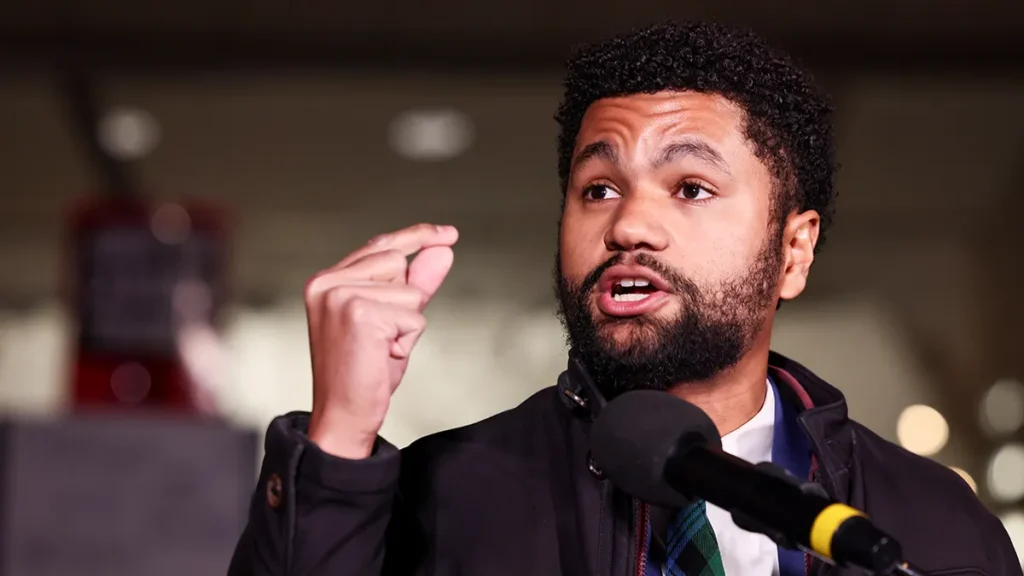
Civil rights advocates argue that rhetoric surrounding immigration, race, and nationalism has increasingly crossed from speech into action — especially in environments where alcohol, political identity, and social status intersect.
“This wasn’t just an argument,” one attendee said. “It felt like something much darker bubbling to the surface.”
CAA and Sundance Respond
CAA representatives emphasized that the party was meant to be a safe, private gathering and that they are cooperating fully with authorities. Festival organizers also distanced the event from official Sundance programming while condemning the violence.
The Sundance Film Festival, long positioned as a platform for marginalized voices and progressive storytelling, has faced renewed scrutiny over security protocols at affiliated private events.
Frost Breaks the Silence
Frost later addressed the incident publicly, underscoring that he would not be intimidated by threats or violence.
“No one should have to endure this — anywhere,” he said, adding that the incident reinforced the importance of confronting hate head-on rather than normalizing it.
Support poured in from fellow lawmakers, artists, and activists, many of whom called for stronger accountability when racially charged speech turns into physical harm.
More Than a Single Arrest
As the investigation continues, the episode has sparked a wider conversation about the responsibility of political leaders, cultural institutions, and event organizers in ensuring safety — especially at moments when rhetoric becomes combustible.
For many, the most unsettling part of the story is how quickly ideology transformed into violence — and how casually the threat of deportation was invoked as a weapon.
What happened at a Sundance party may fade from headlines, but the issues it exposed are far from temporary.
Politics
“Trump Deportation Threat Turned Into Assault”: Man Arrested After Shocking Sundance Incident
A racially charged confrontation at a high-profile Sundance gathering turns violent, prompting an arrest and reigniting debate over hate speech and political rhetoric in public spaces.

What was meant to be an exclusive celebration during the Sundance Film Festival ended in shock and outrage after a racially charged confrontation turned violent, leading to an arrest and widespread condemnation.
A man was taken into custody following an incident at a private party hosted by Creative Artists Agency (CAA) during Sundance, where he allegedly confronted U.S. Congressman Maxwell Alejandro Frost with racist remarks before physically assaulting him.
According to Frost’s account, the man loudly proclaimed how “proud” he was to be white, then escalated the encounter by telling the congressman that Donald Trump was “going to deport me” — a statement Frost confirmed was made moments before he was punched in the face.
The confrontation unfolded amid one of the most influential gatherings tied to the Sundance Film Festival, a space typically associated with artistic expression, political dialogue, and cultural inclusivity.
From Political Taunt to Physical Violence
Frost, the first Gen Z member of Congress and a prominent progressive voice, later confirmed the details of the incident, describing it as an unprovoked escalation rooted in racial identity and political hostility.
ALSO READ : “She Never Made It Out…” Albany House Fire Claims Woman’s Life as Family Pleads for Help to Bring Her Home
Witnesses at the event reported that the man appeared intoxicated and increasingly aggressive before security intervened. Law enforcement confirmed that the suspect was arrested on the scene and that charges are being reviewed.
While authorities have not publicly released the suspect’s name, officials noted that the investigation is treating the matter seriously given the racially charged language used during the encounter.
A Disturbing Pattern Beyond One Night
The incident has quickly drawn national attention, not only because it involved a sitting member of Congress, but because it echoes broader concerns about rising political aggression and racially motivated confrontations in public spaces.

Civil rights advocates argue that rhetoric surrounding immigration, race, and nationalism has increasingly crossed from speech into action — especially in environments where alcohol, political identity, and social status intersect.
“This wasn’t just an argument,” one attendee said. “It felt like something much darker bubbling to the surface.”
CAA and Sundance Respond
CAA representatives emphasized that the party was meant to be a safe, private gathering and that they are cooperating fully with authorities. Festival organizers also distanced the event from official Sundance programming while condemning the violence.
The Sundance Film Festival, long positioned as a platform for marginalized voices and progressive storytelling, has faced renewed scrutiny over security protocols at affiliated private events.
Frost Breaks the Silence
Frost later addressed the incident publicly, underscoring that he would not be intimidated by threats or violence.
“No one should have to endure this — anywhere,” he said, adding that the incident reinforced the importance of confronting hate head-on rather than normalizing it.
Support poured in from fellow lawmakers, artists, and activists, many of whom called for stronger accountability when racially charged speech turns into physical harm.
More Than a Single Arrest
As the investigation continues, the episode has sparked a wider conversation about the responsibility of political leaders, cultural institutions, and event organizers in ensuring safety — especially at moments when rhetoric becomes combustible.
For many, the most unsettling part of the story is how quickly ideology transformed into violence — and how casually the threat of deportation was invoked as a weapon.
What happened at a Sundance party may fade from headlines, but the issues it exposed are far from temporary.
Politics
Why Bari Weiss Says Pulling a ‘60 Minutes’ Story Was the Right Call — Even If It Looked Radical
Facing backlash from activists and political pressure alike, the CBS News editor-in-chief argues that controversial editorial calls are essential to restoring public trust in the media.

In an era when every editorial decision is dissected in real time, Bari Weiss is standing firm behind one of the most controversial calls of her tenure at 60 Minutes.
Weiss has once again defended her last-minute decision to pull a segment from the long-running CBS newsmagazine, acknowledging that the move “may seem radical” to outsiders—but insisting it was necessary to protect what she calls the integrity of the news.
In a memo sent to staff and co-signed by Tom Cibrowski, along with senior editors Charles Forelle and Adam Rubenstein, Weiss framed the decision as part of a broader effort to rebuild public confidence in journalism at a time when trust in media institutions continues to erode.
The Story at the Center of the Storm
The pulled segment reportedly focused on the experiences of Venezuelan migrants deported by the Donald Trump administration to a prison in El Salvador—a topic that sits at the intersection of immigration policy, human rights, and partisan politics.
ALSO READ : “She Never Made It Out…” Albany House Fire Claims Woman’s Life as Family Pleads for Help to Bring Her Home
According to Weiss, the issue was not the subject matter itself, but whether the segment met the editorial standards the newsroom demands before airing.
“No amount of outrage—whether from activist organizations or the White House—will derail us,” Weiss wrote in the memo, making clear that external pressure did not drive the decision.
Instead, she characterized the move as an example of editorial restraint at a time when speed, outrage, and social-media reaction often dominate newsroom judgment.
A ‘Radical’ Choice in a Polarized Media Climate
Weiss did not shy away from describing the decision as controversial. In fact, she embraced that reality, arguing that journalism sometimes requires choices that invite criticism from all sides.
In today’s media environment, pulling a completed story—especially one tied to immigration and a former president—is almost guaranteed to ignite backlash. For Weiss, that backlash is part of the cost of maintaining standards.
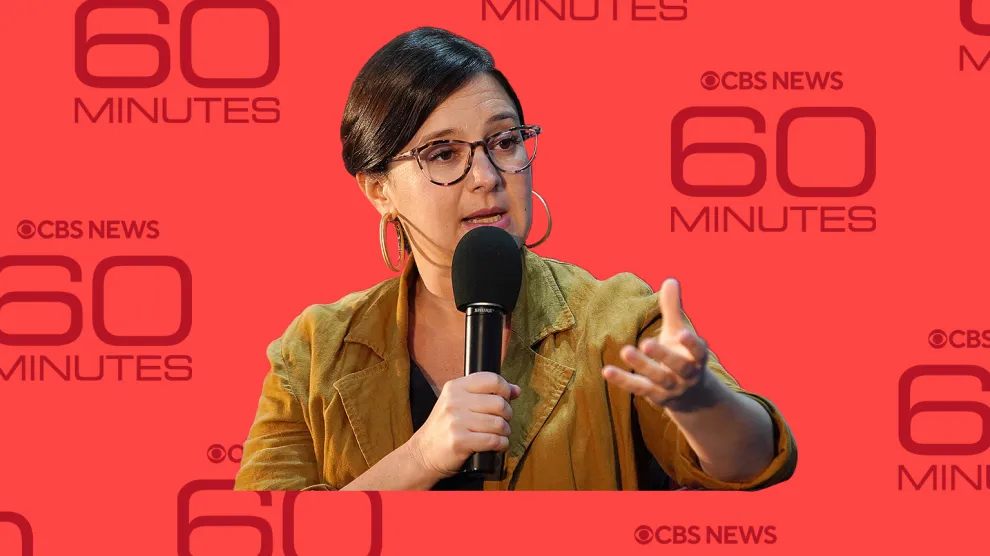
“Necessary decisions can cause a firestorm,” she acknowledged, suggesting that editorial courage is often indistinguishable from provocation in a deeply polarized public sphere.
Trust as the Real Battleground
At the heart of Weiss’s defense is a larger concern: Americans’ declining trust in news organizations.
By emphasizing caution over immediacy, Weiss positioned the decision as a long-term investment in credibility rather than a short-term reputational hit. Her message to staff was clear—journalistic integrity must outweigh the pressure to satisfy activists, political actors, or even audience expectations.
The memo’s tone reflected a newsroom aware that neutrality itself has become suspect, and that editorial leadership now involves navigating not just facts, but perceptions of motive.
What This Means for ‘60 Minutes’ and CBS News
For CBS News, the controversy underscores how even legacy institutions are struggling to operate in a climate where every editorial choice is interpreted through ideological lenses.
60 Minutes, long regarded as one of the most influential investigative programs in American television, now finds itself at the center of a debate about transparency, restraint, and the line between caution and censorship.
Supporters of Weiss argue that pulling the story demonstrates editorial responsibility. Critics contend it risks chilling coverage of sensitive topics.
Both sides, however, agree on one thing: decisions like this are shaping the future of mainstream journalism.
A Defining Moment for News Leadership
Whether Weiss’s call ultimately strengthens or weakens public trust remains an open question. But her willingness to publicly frame the decision as “radical” suggests an editor aware that traditional newsroom playbooks no longer apply.
In a media landscape driven by immediacy and outrage, restraint itself may now be the most provocative stance of all.
-

 Entertainment6 days ago
Entertainment6 days agoHe-Man Wears a Suit Now… Nicholas Galitzine’s ‘Masters of the Universe’ Trailer Drops a Shock Fans Didn’t See Coming
-

 Entertainment1 week ago
Entertainment1 week agoBrazil Eyes Oscar History Again… ‘The Secret Agent’ Scores Best Picture Nomination as Wagner Moura Stuns Hollywood
-

 Entertainment4 days ago
Entertainment4 days ago“Comedy Needs Courage Again…”: Judd Apatow Opens Up on Mel Brooks, Talking to Rob Reiner, and Why Studio Laughs Have Vanished
-

 Entertainment1 week ago
Entertainment1 week agoBox Office Shocker as Chris Pratt’s ‘Mercy’ Knocks ‘Avatar 3’ Off the Top but Nature Had Other Plans…
-

 Entertainment6 days ago
Entertainment6 days agoOscars Go Global in a Big Way as This Year’s Nominations Signal a New Era: ‘The Academy Is Finally Looking Beyond Hollywood…’
-

 Entertainment1 week ago
Entertainment1 week agoMichael Bay Makes a Power Move… Blockbuster Director Signs with CAA in a Deal That’s Turning Heads
-

 Entertainment6 days ago
Entertainment6 days ago“Dangerously Kinky… and Darkly Funny”: Olivia Wilde and Cooper Hoffman Push Boundaries in ‘I Want Your Sex’
-

 Entertainment1 week ago
Entertainment1 week agoFans Didn’t Expect This Look… Nicholas Galitzine’s Masters of the Universe Trailer Sparks Debate




